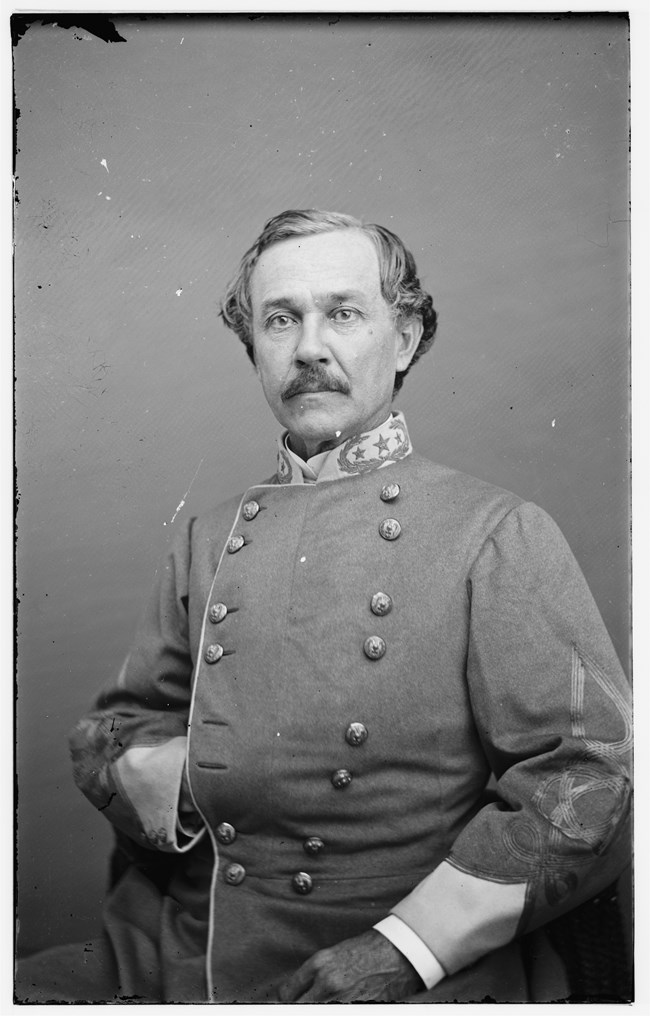
Library of Congress The Confederacy's Cannon Maker Anderson was born in 1813 near the town of Fincastle in Botetourt County, VA, nestled between the Blue Ridge Mountains on the east and the Appalachians on the West. The son of a veteran of both the Revolution and the War of 1812, he received an appointment to the Unites States Military Academy at West Point from which he graduated 4th in his Class of 1836. Serving briefly as a second lieutenant in the 3rd United States Artillery, Anderson was later transferred to the Corps of Engineers where he worked, among other things, on the construction of Fort Pulaski at the mouth of the Savannah River in Georgia. He married Sarah Eliza Archer of Norfolk, VA in May 1837 and soon after resigned his commission. That same year he became a civil engineer and went on to work as an Assistant State Engineer under the Virginia Board of Public Works where he oversaw the construction of the Valley Turnpike between the towns of Staunton and Winchester in the Shenandoah Valley. In 1841, Joseph Reid Anderson began his long association with the Tredegar Iron Company, becoming the commercial agent for the business in March of that year. In that post, Anderson was able to help turn things around financially for the struggling company by contracting with the federal government to provide munitions and other manufactured goods for the United States army and navy. He began leasing the company in 1843 and, five years later, purchased the operation outright. During this time Anderson began using enslaved people as skilled industrial laborers. When skilled white workers went on strike in 1847 in protest, Anderson fired them and replaced them with slaves. Many of these enslaved workers were owned by the company; more were leased from plantation owners. In the decade before the Civil War, Joseph Reid Anderson entered Virginia state politics, being elected to a vacant seat in the Virginia House of Delegates in 1852. He was re-elected in 1853 and 1857. In 1860, with the election of Abraham Lincoln to the Presidency, Anderson favored secession from the United States and advocated for the sale of military arms to the south. When war broke out in 1861, he organized white workers into a home guard known as the Tredegar Battalion. In September of that year, he was commissioned a Brigadier General in the Confederate Army. Outside Richmond during the Seven Days Battles in 1862, Anderson commanded a brigade in A.P. Hill’s “Light Division” in the Army of Northern Virginia and was wounded. He resigned his commission later that summer to resume as superintendent of Tredegar Iron Works. Tredegar’s operations grew tremendously during the war. The company supplied nearly half of all cannon used by the Confederacy. It also produced machinery and armor plating for Confederate warships, including the ironclad CSS Virginia, and produced iron for use by southern railroads. With the fall of Richmond in early April 1865, however, Joseph Reid Anderson became a strong advocate of peace. He, along with several Richmond City leaders, met with Abraham Lincoln during the latter’s visit to the city on April 4 to discuss bringing the war to an end. He also worked to call the General Assembly into session in order to remove Virginia from the Confederacy. He requested and received a pardon from President Andrew Johnson on September 21, 1865 and was able to resume ownership of Tredegar Iron Works shortly thereafter. The company was profitable in the years following the war, employing up to 1,200 workers but the economic panic of 1873 resulted in financial difficulties that kept Tredegar from transitioning to steel production. It remained a going concern well into the 20th century however, providing munitions and other supplies to the United States Army during World Wars I and II. After the death of his wife Sarah in 1881, Joseph Reid Anderson remarried the following year. He died on September 7, 1892. |
Last updated: September 4, 2021
